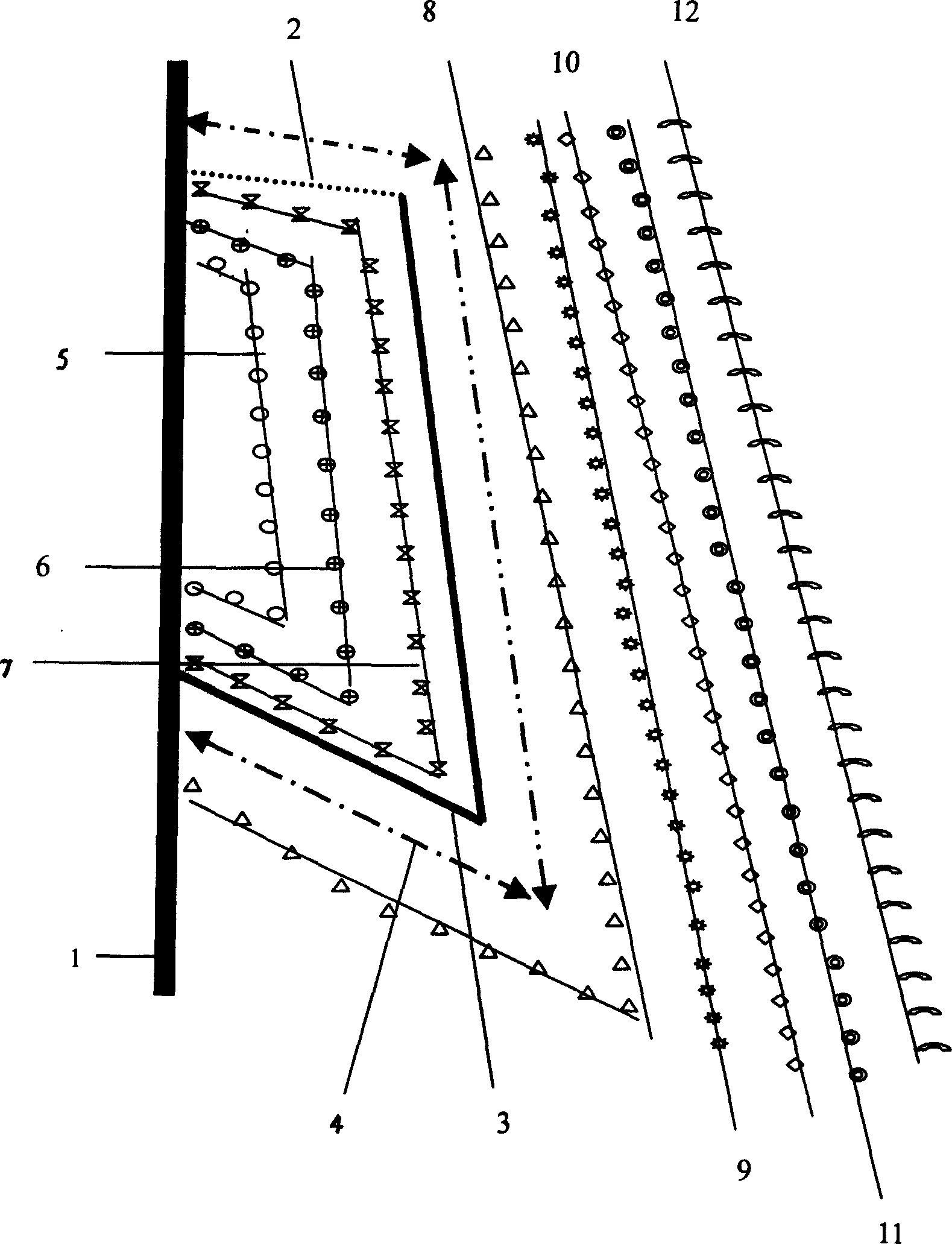Method for renovating zoology in lakeshore zone
A technology for ecological restoration and lakeshore zone, applied in chemical instruments and methods, sustainable biological treatment, biological water/sewage treatment, etc. The effect of improving transparency and improving resistance
- Summary
- Abstract
- Description
- Claims
- Application Information
AI Technical Summary
Problems solved by technology
Method used
Image
Examples
Embodiment Construction
[0022] Attached below figure 1 The present invention is further described in detail.
[0023] According to attached figure 1 It can be seen that the restoration method of this kind of lakeshore zone is as follows:
[0024] 1. Select a location with a water depth of 80cm or 90cm or 100cm or 110cm inside the 200-mu coastal zone 1 in the test area, and delineate a water area of 15 mu;
[0025] 2. Choose 1-3 kinds of emergent plants: choose Cattail 7 that is relatively resistant to wind and waves, water onion 5 and Zizania 6 that are not resistant to wind and waves. Among them, Cattail 7 is more resistant to wind and waves and planted on the periphery of the emergent plant area to ensure its own survival. The rate is 80-90%, and it also ensures that the survival rate of Zizania 6 and Water Onion 5 in the emergent plant area reaches 80-90%; choose 1-5 kinds of submerged plants: Foxtail Algae 8, Erythera 9, and Malayan 10 sub-vegetables, 11 light-leaf sub-vegetables, and 12 gra...
PUM
 Login to View More
Login to View More Abstract
Description
Claims
Application Information
 Login to View More
Login to View More - R&D
- Intellectual Property
- Life Sciences
- Materials
- Tech Scout
- Unparalleled Data Quality
- Higher Quality Content
- 60% Fewer Hallucinations
Browse by: Latest US Patents, China's latest patents, Technical Efficacy Thesaurus, Application Domain, Technology Topic, Popular Technical Reports.
© 2025 PatSnap. All rights reserved.Legal|Privacy policy|Modern Slavery Act Transparency Statement|Sitemap|About US| Contact US: help@patsnap.com

